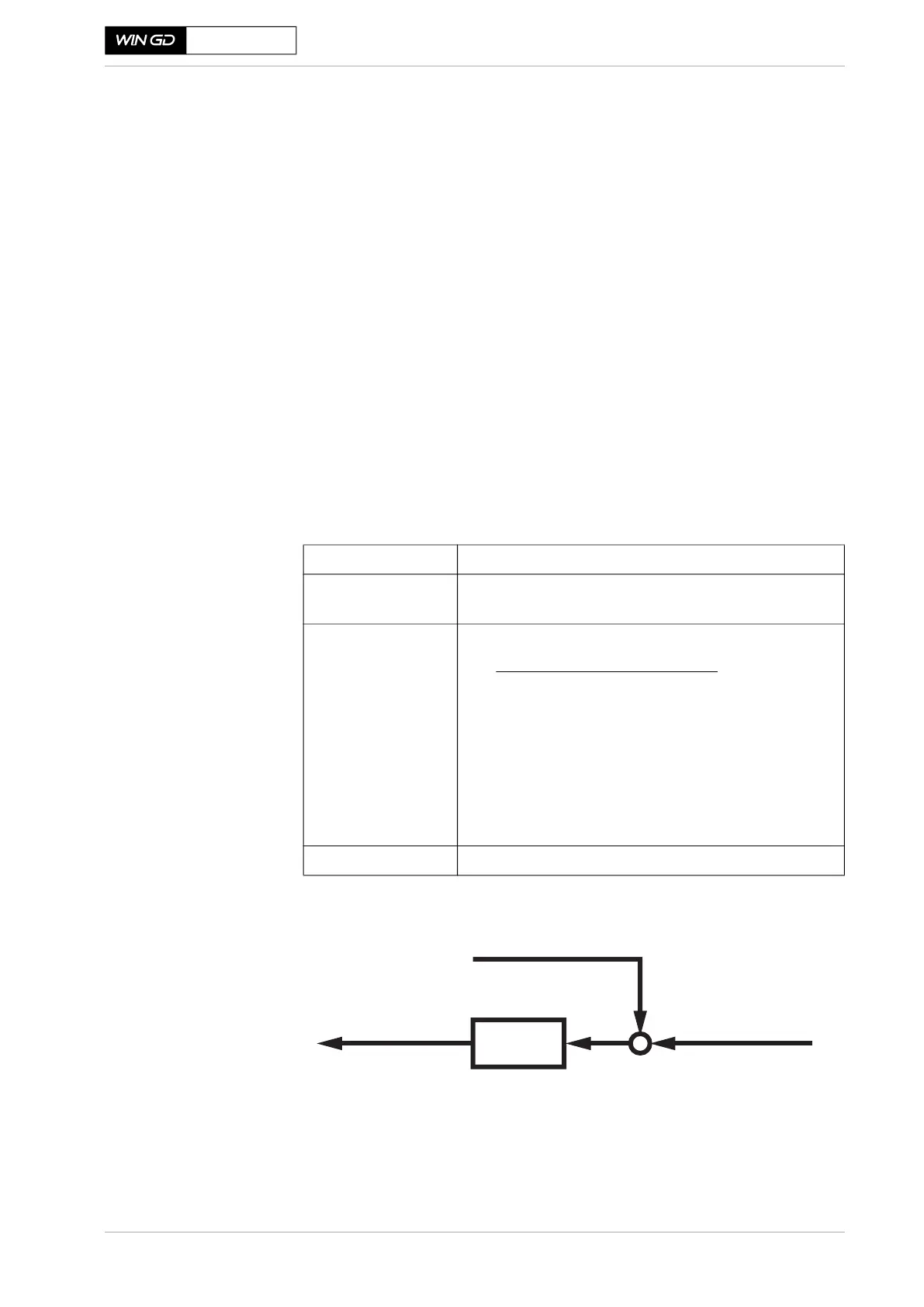Marine Installation Manual 2022-03 4-73
4 Ancillary Systems
4.7 Fuel oil system
X62DF-S2.0
Viscometer
The viscometer regulates the fuel oil end-heater, enabling the fuel oil viscosity to
be kept at preferable engine conditions. When using HFO/LSHFO the ideal is
13-17cSt, and between 10-20cSt is acceptable. Although there is no active
cooling required to keep the minimum limit of 10 cSt, the absolute minimum vis-
cosity is 2cSt.
When using low-viscosity fuels, the end-heater must not be active and the
MDO/MGO heat exchangers will be required to maintain these limits.
MDO/MGO heat exchanger
For MDO/MGO operation, the fuel might need to be cooled to stay above a
minimum viscosity of 2 cSt at engine inlet. This fuel oil heat exchanger (and any
optional heat exchanger that is included, as shown in Concept Guidance Distillate
Fuels) uses low-temperature cooling water.
A chiller unit (cooling from refrigeration) is not required if the fuel properties are
in line with the latest ISO 8217:2017 specification. Such a unit would only be
needed for off-spec fuels that are not supported by WinGD.
Type Tubular or plate type heat exchanger, suitable for diesel oils
Cooling medium LT cooling water
Alternatively: glycol-water mixture delivered from chiller unit
Cooling capacity [kW]
where:
Q [kW]
BSFC [g/kWh]
P [kW]
T
1
[°C]
T
2
[°C]
= cooler heat dissipation at 100 % engine load
= specific fuel consumption at design conditions
and 100% engine load
= engine power at 100% CMCR
= temp. of distillate fuel supplied to engine
= temp. of distillate fuel required at engine inlet
Working pressure Max. 12bar, pulsating on fuel oil side
0.34 25.65
SM-0187
From the engine
Distillate fuel supplyTo the engine T
1
T
2
MDO/MGO
heat exchanger
